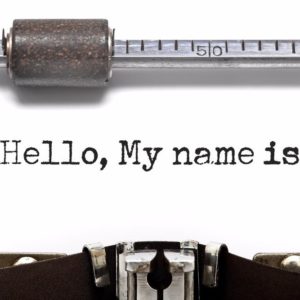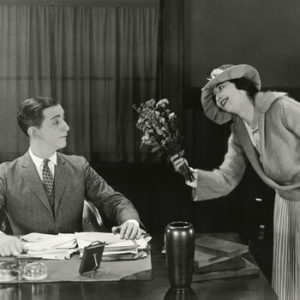

Don’t Disregard That Stereotype!
When it comes to people working out your personal brand, it’s the clues you’re giving – both in person or remotely – that form the basis of their views.
By interpreting those clues, based on their own experiences, cultural norms and inherent values, people form a picture of you in their mind.
Stereotypes play a big part in that.
Often seen as harmful or wrong because they can lead us to make biased assumptions (at a conscious or unconscious level), stereotypes are in fact very useful things. Thousands of times a day, they allow us to make mental shortcuts about whatever we encounter – and a new study suggests there’s a 75% chance they’ll be accurate (at least on Twitter).
Here’s the science bit…
Psychologists at the University of Pennsylvania asked 2,741 Americans to rate anonymised tweets written by 7,296 different people. The volunteers were asked to categorise whether the message was written by:
- a man or a woman
- someone young or old
- a conservative or liberal
- someone with or without a university degree
The scientists found people can judge a tweeter’s gender, approximate age and broad political opinions with more than 75% accuracy, solely from the words they use. Here are some examples the study said can instantly give the game away. (Warning: you might be about to cringe…big time!):
Women – cute, shopping, love, hair, my, husband, chocolate, gorgeous, make-up, dinner
Men – beer, game, government, fantasy, political, data, football, police, against
Under 24s – I, me, my life, crying, friends, sleep, bae [I had to look this up as I’m an old codger, but it seems it means ‘baby’.]
Over 24s – new, our, via, poverty, jobs, park, families, awesome [That last one would seem to add to the American stereotype.]
Conservatives – Muslims, defend, Christ, evil, babies, Isis, illegal, liberal
Liberals – violence, action, science, planet, African, marijuana
With a 75% accuracy rate, stereotypes have their place in helping us form our impressions of people – particularly the initial ones, where we have only a few clues to go on.
But they’re not 100% accurate.
So while stereotypes can get your view of someone into a certain ballpark, it’s a good idea to keep your brain’s receptors open to further clues. They’ll either confirm your assumption – and maybe even tell you more accurately where in the ballpark that person stands – or they’ll make you realise they’re in a different ballpark altogether.
For example, in the study, women were inaccurately perceived to be men if they talked about tech, business or the news. Conversely, men were inaccurately perceived to be women if they talked about family or were positive.
As Dr Jordan Carpenter who led the study puts it, “Stereotypes are more useful as the diversity of people we interact with increases. If I’m to draw accurate conclusions at all, the best place to start is with the associations I’ve learnt about that group. In other words, stereotypes.
“But at the same time, this makes it easy to be complacent about my stereotypes and not think twice about whether or not they’re fair, or about whether or not I’m using them wisely.”
Are you a fan of a stereotype to help you form your initial impressions, keeping in mind they may change as more clues emerge? (I am.) Or do you feel stereotypes have had a bad rap for a good reason? I’d love it if you’d let me know where you stand with a quick comment below.








Leave a Reply